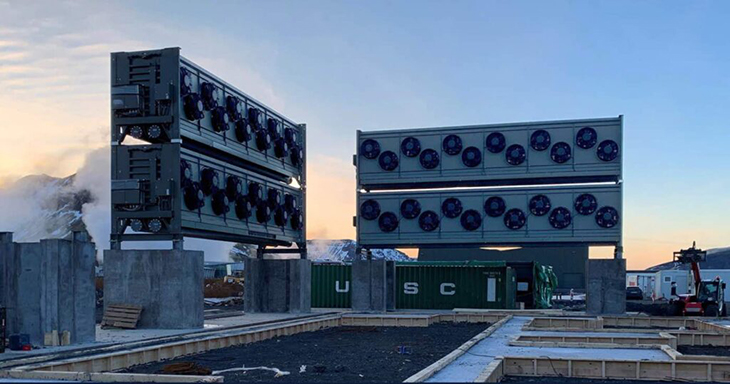
In worldwide efforts to lessen emissions all around the world, there is a large number of carbon capture and storage projects going on.
In a recent report from the Global CCS Institute, a company that studies carbon capture and storage (CCS), it shows that there was remarkable growth of at least 44 percent within the last 12 months alone.
The Global CCS Institute describes itself as ‘an international think tank whose mission is to accelerate the deployment of carbon capture and storage (CCS), a vital technology to tackle climate change and deliver climate neutrality.’
According to the CEO of this so-called climate change think tank, Jarad Daniels, he believes that the outlook for climate actions “has never been more positive.”
They also share that this record-high total is a result of 196 commercial CCS facilities that are part of the project pipeline, which include at least 30 in operation, 11 currently under construction, and another 153 that are still under development.
With at least 61 new facilities added to the project’s pipeline in 2022 alone, the CO2 capture capacity of all the facilities under development has actually grown to 244 million tons per annum (Mtpa), which increased from last’s years number, which was 169 million tons.
Used to filter emissions from power generators, carbon capture and storage gets its intake from steel mills, power generators, cement plants, and other types of industrial sites, which then buries the collected carbon underground.
Moreover, CEO Daniels believes that CCS is essential for reaching national climate goals. He also shares that he’s noticed that as ‘CCS continues to scale-up, prices are going down while efficiency is going up.’
In a statement, Daniels shared, “CCS is increasingly commercially competitive. We anticipate even more strategic partnerships and collaboration driving deployment, particularly through CCS networks.”
Passed by the US Congress, the Inflation Reduction Act legislation gives tax credits for CCS. Notably, early reviews show that this could possibly increase the growth by 13-fold, which is well over 110 Mtpa by the year 2030.
Moreover, these CCS projects also provide both economic and social benefits since it can supply local jobs in a number of communities which once relied on carbon-intensive industries, such as coal mining, agriculture and the transportation industry.
As for Europe, the Danish government has committed at least €5 billion for these carbon capture and storage projects over the last 10 years, while the Dutch government has even more than doubled its pledge to an impressive €13 billion. Australia also announced some new projects in Victoria, as well as in Western Australia, with some more noteworthy progress in the Northern Territory of the continent.
Daniels shares, “Government policy must be met with private capital to unlock the full potential of CCS and limit global warming.” He also says that he sees the next decade as an “absolutely critical time to move from ambition to action.”
What are your thoughts? Please comment below and share this news!
True Activist / Report a typo


